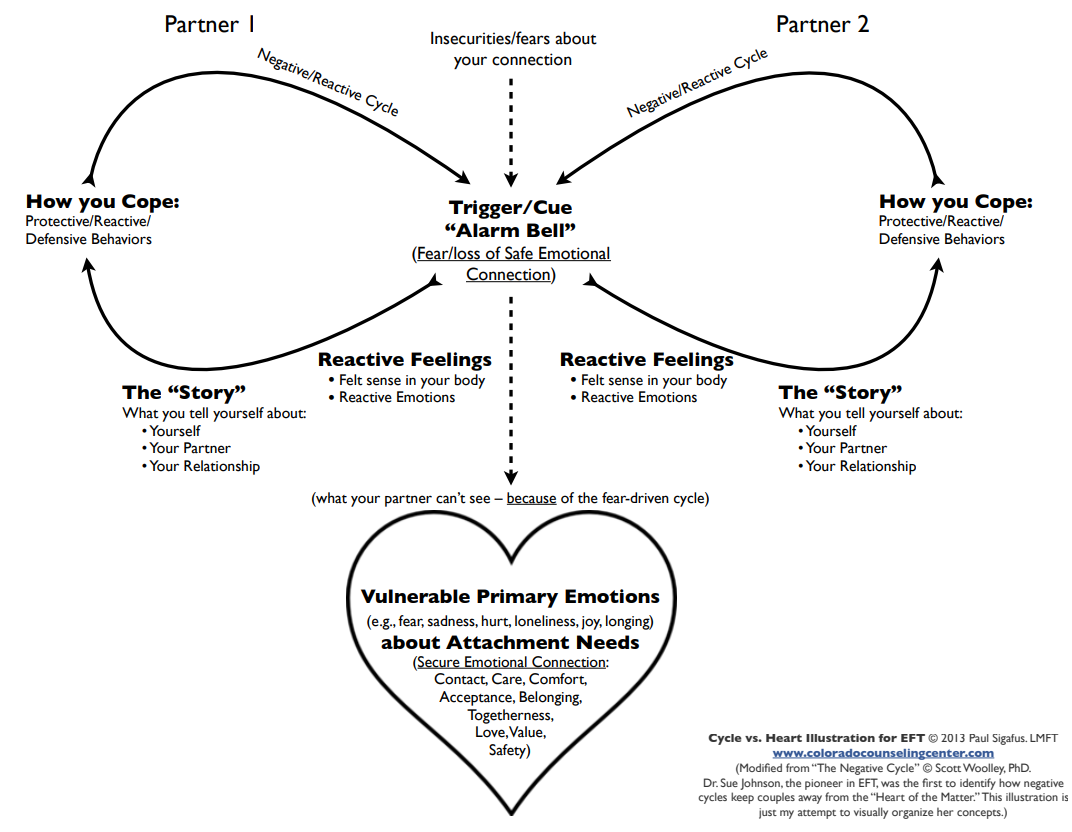There are many reasons couples seek couples therapy. There may have been a shared loss, an increase in life stressors like welcoming a new baby, a betrayal, an increase in conflict, or overall disconnection with one another.
There are a variety of reasons people find themselves in my couples therapy room. Regardless of the presenting problem, as an Austin couples therapist who uses Emotionally Focused Therapy (EFT), one of my first tasks is to help my clients understand their negative cycle.
But let’s back up a little bit and first talk about attachment. As humans, we are hardwired to connect with others. We are born needing closeness, belonging, connection to our caregivers, and for our needs to be responded to. The way these needs are met or unmet is, in a nutshell, what we refer to as the attachment bond.
While we develop and grow to be more independent and self-sufficient, the need for attachment bonds does not go away. We still seek closeness with others, and many find this bond through a love relationship. Within this bond, we hope to feel loved and understood, to share in meaningful experiences, and to be able to love and care for the other person. This bond becomes so important, and because it is so important, when there is emotional distance, a need is missed or you’re getting signals from your partner that your bond is threatened, a pattern of distress can emerge.
Most couples who experience conflict or difficult interactions will also notice that they follow a familiar and repetitive pattern - a negative cycle. They find themselves in this pattern over and over again. These are the interactions that feed off one another and lead to disconnection and conflict. Within these interactions, both partners are having an emotional response to the other person's way of coping with distress in the relationship.
It might look something like this…
In Emotionally Focused Therapy (EFT), a model of couples therapy developed by Dr. Sue Johnson, the first order of business is for the couple and therapist to get an idea of their unique negative cycle. It’s important to first map your cycle, understand your moves, your partner’s moves, and the emotions that trigger and keep the cycle going. Then you can slow down and choose a more successful path of communication where your message can not only be received but also digested and responded to.
Your EFT therapist will help you slow down and notice your emotional experience. What do you see that sets your “alarm bells” off? What happens inside for you? How do you make sense of what you see from your partner? What do you do next? How does your partner respond? And so on and so forth.
The Negative Cycle
When the negative cycle is alive between you and your partner, it’s moving VERY fast. Part of therapy is slowing this process WAY down and exploring each part of the cycle in a safe environment and in the care of a couples therapist. When you’re not caught in the cycle and have slowed down, you can process things from a less reactive and more receptive place, which means more space for new reactions and responses.
Article by Cat van der Westhuizen, LPC, LMFT







































































